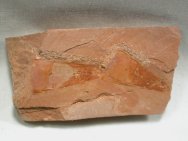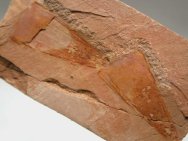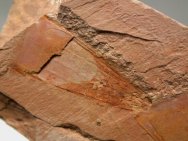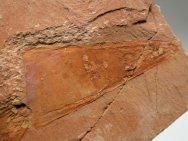| 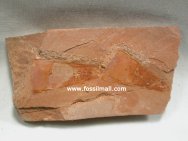 Description:
The discovery of the Chengjiang Biota by Hou Xian-guang in 1984
brought to light an exceptional largerstatte of the time known
as the Cambrian Explosion. The diversity of soft-tissue fossils
is astonishing: algae, medusiforms, sponges, priapulids, annelid-like
worms, echinoderms, arthropods (including trilobites), hemichordates,
chordates, and the first Description:
The discovery of the Chengjiang Biota by Hou Xian-guang in 1984
brought to light an exceptional largerstatte of the time known
as the Cambrian Explosion. The diversity of soft-tissue fossils
is astonishing: algae, medusiforms, sponges, priapulids, annelid-like
worms, echinoderms, arthropods (including trilobites), hemichordates,
chordates, and the first 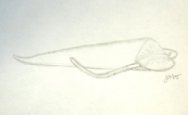 agnathan fish make up just a small fraction
of the total. Numerous problematic forms are known as well, some
of which may have represented failed attempts at diversity that
did not persist to the present day. agnathan fish make up just a small fraction
of the total. Numerous problematic forms are known as well, some
of which may have represented failed attempts at diversity that
did not persist to the present day.
This is a member of the Hyolitha, a phylum with problematic affinities,
thought to be related to the mollusks. They are thought to have
lived on the substrate, resting on the flatter side of the shell
for stability. The two stabilizing structures are termed the Helens
(named by C.D Walcott of Burgess Shale fame for his daughter).
While Hyolthids are a common fossil of the Chengjiang Biota, many
have not been described. This one is a member of the genus Burithes.
Of all the hyolithids in the Chengjiang Biota, this taxon has the
largest shell.
|


